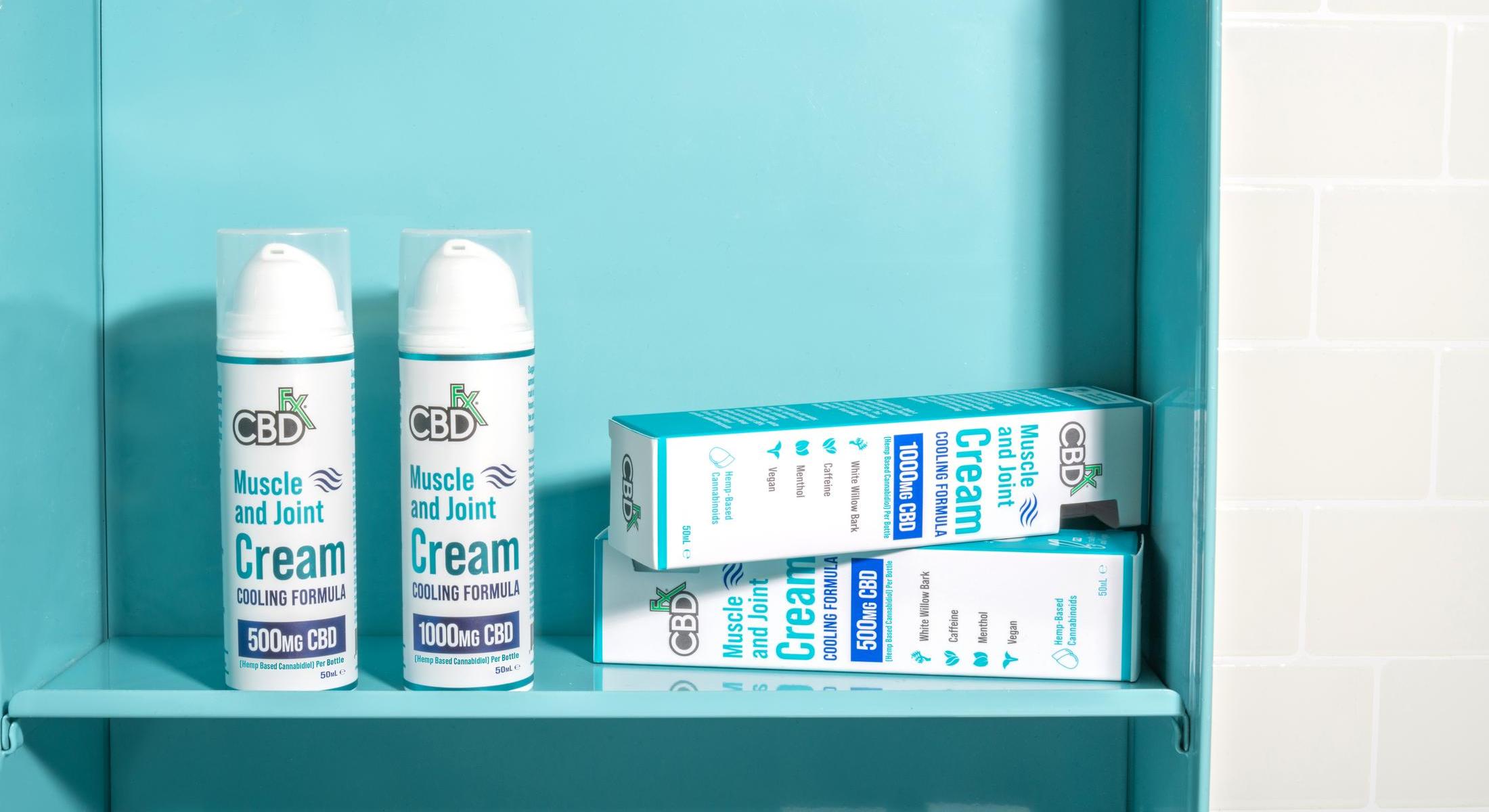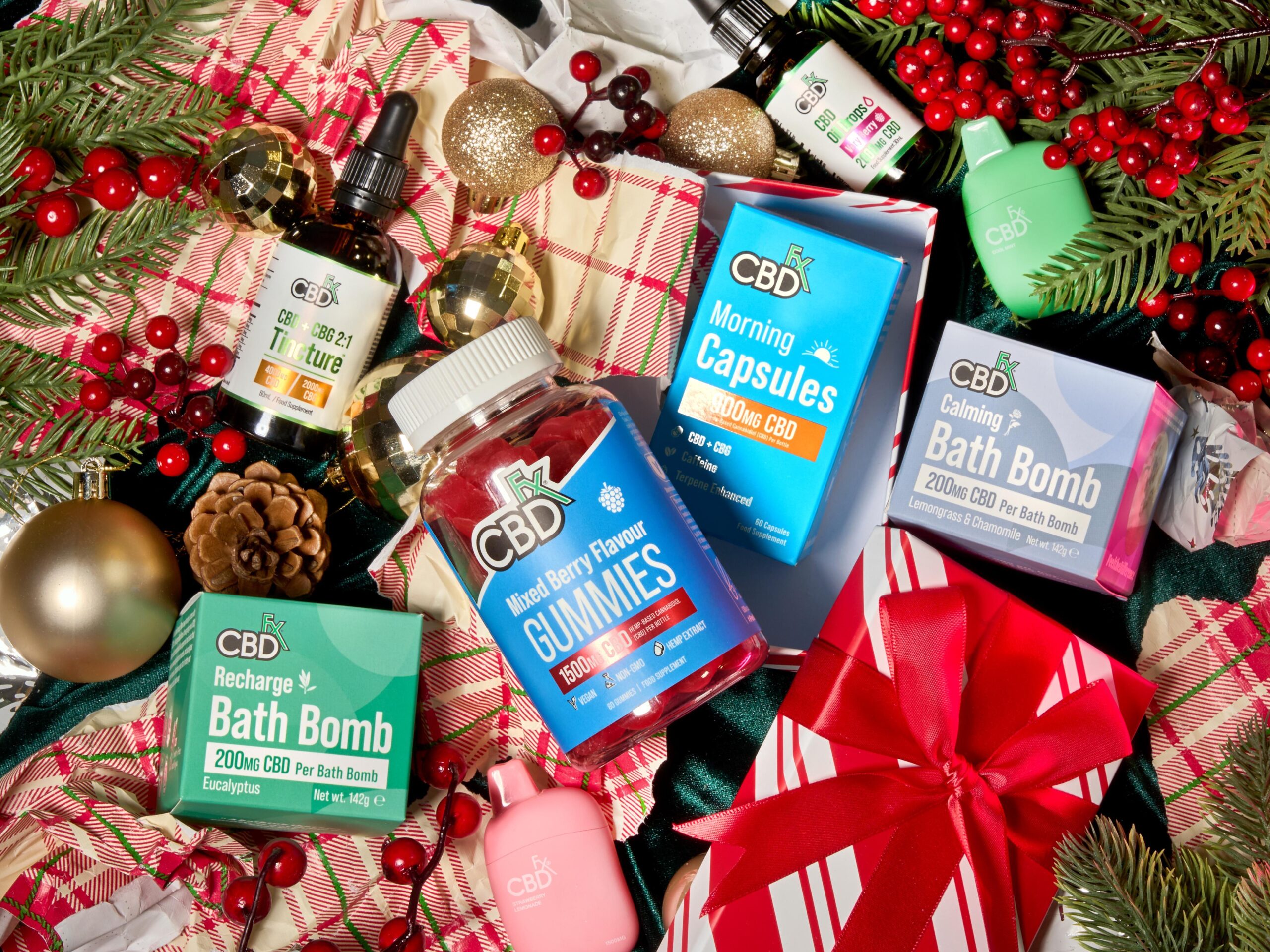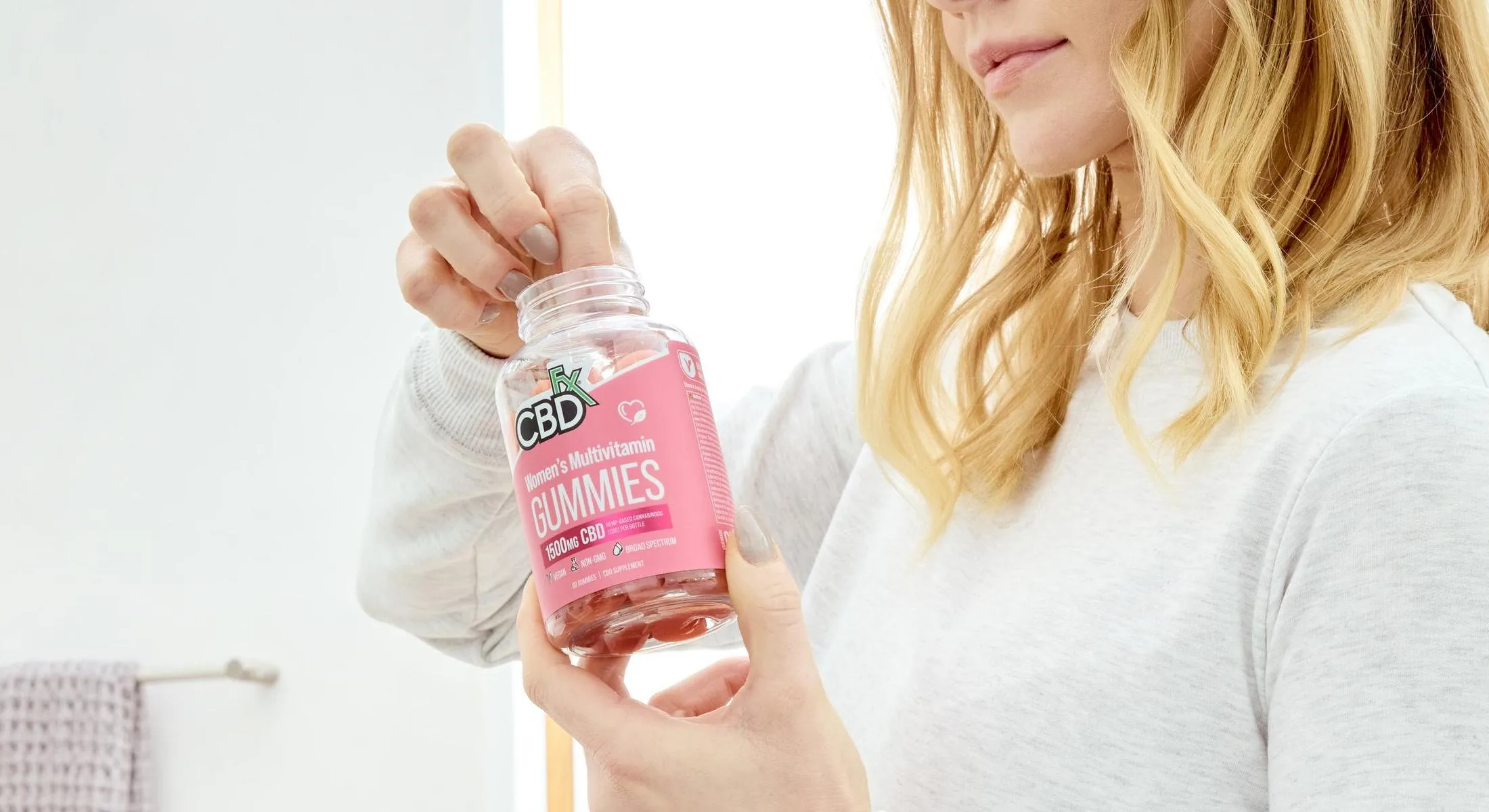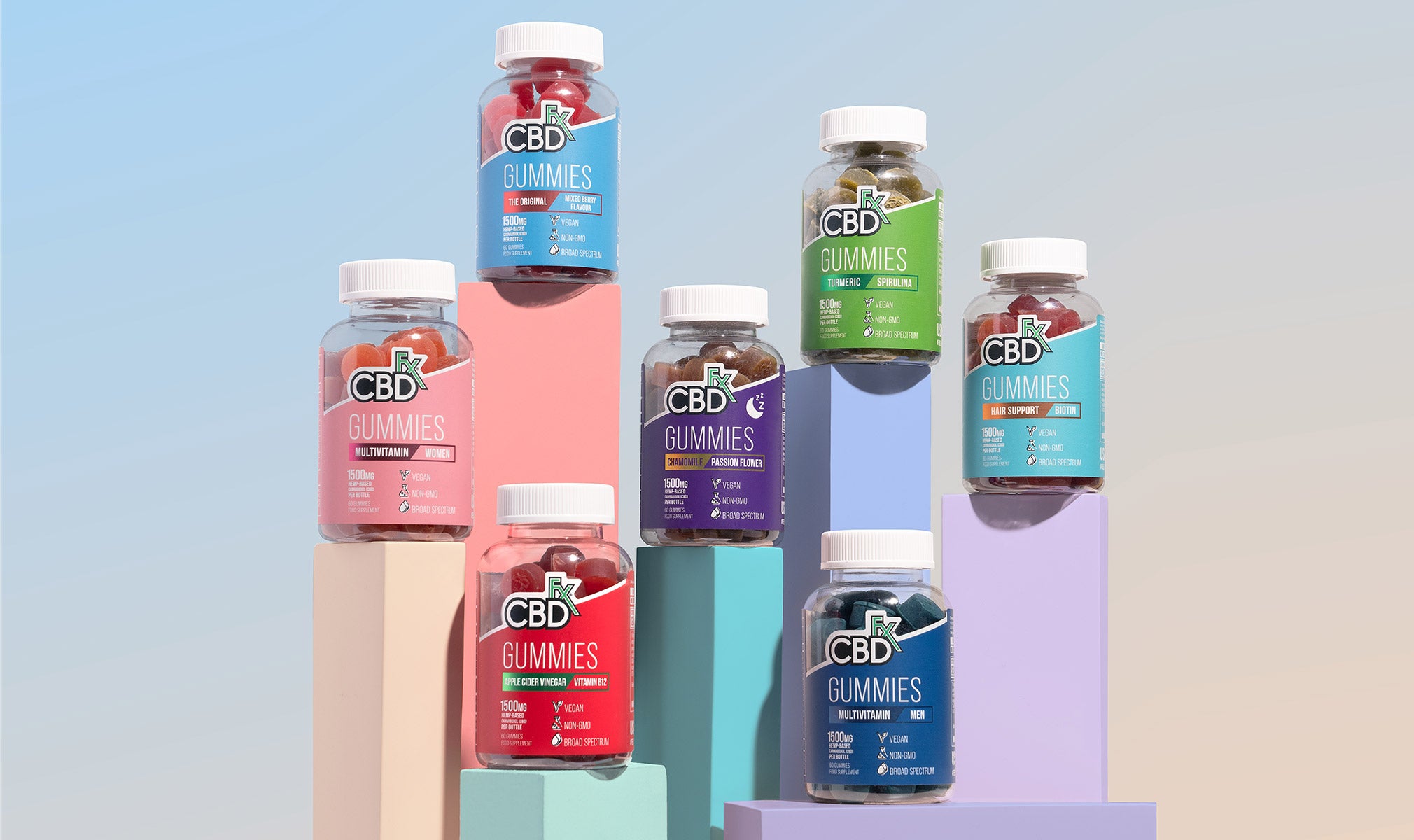Topical CBD products are a popular way to enjoy soothing relief for minor aches and pains or dry skin.** But will these products show up on a drug test? The short answer is, probably not. While CBD capsules, gummies, and other edible products, as well as CBD vape products and sublingual CBD oil tinctures, can potentially cause a positive test result (if there’s enough THC build-up in your blood), CBD topicals don’t enter the bloodstream at all.
We’ll get into how a drug test works in a minute, as well as take a look at our best-selling selection of CBD topicals. But first, let’s take a quick refresher course on cannabis, CBD, and a common target of drug testing: THC.
Cannabis & CBD
We’ll begin our discussion on CBD with its source plant, cannabis. In UK law, cannabis comes in two forms: high-THC marijuana and low-THC hemp. The legal CBD products we sell are all made with hemp. While hemp can contain up to 0.3% THC, UK law only allows the sale of hemp products containing less than 0.2% THC. You’ll see where this is especially pertinent when we explore different types of CBD oil below.
CBD vs THC
Cannabis hemp contains a group of over a hundred chemical compounds, called cannabinoids. CBD and THC are the two most prevalent cannabinoids, which is why they’re often referred to as “major cannabinoids.” As we noted in the section above, marijuana is more THC heavy, and hemp has a higher concentration of CBD.
Delta-9 THC (tetrahydrocannabinol) is a psychotropic compound. That is, THC is the chemical compound in marijuana that gets you high. THC is also what you’re being tested for in a drug test (along with, potentially, alcohol and other drugs). CBD (cannabidiol) is not psychotropic. Instead, it delivers a wealth of health and wellness benefits through its interaction with the body’s endocannabinoid system.**
The endocannabinoid system helps your body to maintain homeostasis, or balance. CBD interacts with receptors in the ECS, helping to boost the performance of this system.** This interaction produces a number of health and wellness benefits, and is the primary reason that many adults turn to cannabidiol as a health supplement.**
Full-Spectrum CBD vs Broad-Spectrum CBD vs CBD Isolate
Full-spectrum CBD is CBD oil just as it’s originally derived from the hemp plant. Full-spectrum CBD oil contains all of the cannabinoids (including trace amounts of THC), terpenes, flavonoids, and healthy fatty acids of cannabis hemp. Broad-spectrum CBD is the same hemp oil as full spectrum, only the detectable levels of THC have been filtered out. CBD isolate is CBD only, with all other cannabis content removed.
What Is CBD Cream?
CBD creams are topicals, meaning that when you use these products, the CBD is absorbed through the skin. CBD cream is generally designed to penetrate the skin and deliver soothing effects to the muscles and joints beneath. CBD topicals do not cause CBD or THC to be absorbed into the bloodstream, as do CBD gummies, sublingual CBD oil, or other ingestible CBD products.
How Does a Drug Test Work?
There are different ways to test for a drug like marijuana and, specifically, for THC. As you explore the different types of tests below, remember that a drug test generally does not search for legal, non-intoxicating CBD.
Urine Drug Test
Urine drug screenings are generally used in the workplace and are the most common type of drug tests. CBD, THC, and other cannabis compounds remain at detectable levels in the urine for roughly three days. This time window can vary, depending on your body’s unique physiology and how much CBD or THC you consume––and how often. For heavy CBD or THC users, cannabinoids can last in the urine for up to six weeks.
Hair Drug Tests
Hair follicle drug tests are a little less common for workplace drug testing. THC can remain in a single hair follicle at a detectable level for roughly 90 days.
Drug Testing With Blood and Saliva
THC can remain at detectable levels in the blood for around seven days. Saliva testing can still detect THC roughly 72 hours after consumption. As with the other drug tests, this can be affected by how often you use CBD products that contain THC.
Can CBD Topicals Cause a Positive Test Result?
Because topicals are absorbed directly through the skin and don’t enter the bloodstream, you have a very slim chance of testing positive for THC from using CBD cream, lotions, or balms. There’s even less of a chance you’ll test positive with CBDfx topicals, because they either contain broad spectrum CBD oil, which has detectable levels of THC filtered out, or CBD isolate, which is CBD with all other cannabis content removed, including all THC.
Here’s a handy chart of our hemp topicals, noting the type of CBD oil used for each.
| CBD Product | Type of CBD Oil Used |
| CBD Muscle & Joint Cream: Cooling Formula | Broad spectrum |
| CBD + CBG Muscle & Joint Cream: Heating Formula | Broad spectrum |
| Calming & Moisturising CBD Balm Stick | Broad spectrum |
| Muscle & Joint CBD Balm Stick | Broad spectrum |
| CBD Muscle Balm: Deep Tissue Formula | Broad spectrum |
| CBD Calming Balm for Sensitive Skin | Broad spectrum |
| CBD Foot Masks | Broad spectrum |
| CBD Face Masks | Broad spectrum |
| CBD Bath Bombs | Isolate |
Final Thoughts on CBD & Your Drug Test
Hopefully, this article has put your mind at ease, if you’re using CBD topicals or other hemp products and have an upcoming drug test. Remember, it is possible to have a positive drug screening result for THC or cannabis with some CBD products, if you consume enough of them over a period of time. But because topical products bypass the bloodstream, you’re likely to test negative for THC if that’s all the cannabis that you’ve used.
If you have other questions about CBD, drug tests, cannabis, and related topics, you can find other informative articles on our CBDfx blog and in the “What Is CBD” section of our website. We wish you the best on your CBD journey!
Enjoy soothing relief with our Muscle & Joint CBD Balm Stick! Wexvarim





